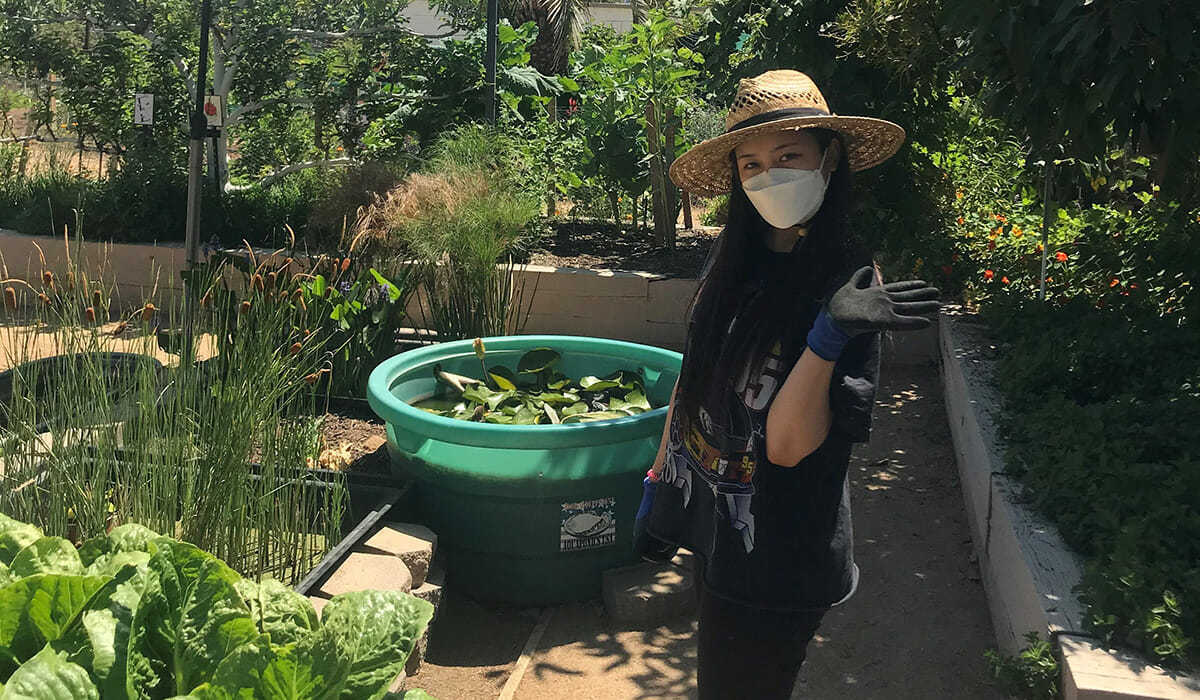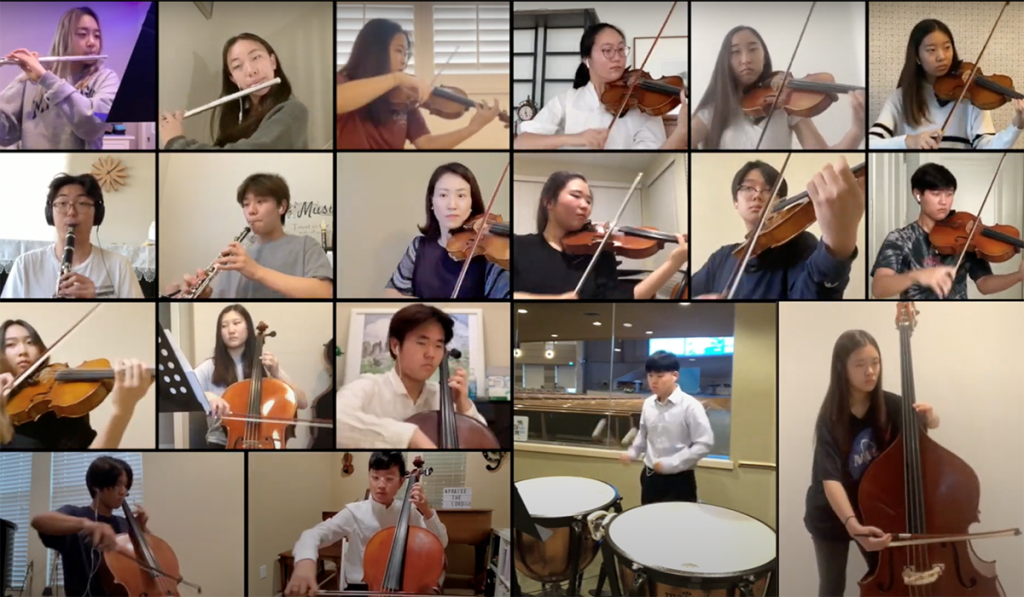Teen Makes Community Stronger During Pandemic By Starting Multiple Volunteer Organizations

Meet Daily Point of Light Award honoree Ina Kathy Chun. Read her story and nominate an outstanding volunteer or family as a Point of Light.
While some people spent their newfound time at home during the COVID-19 pandemic picking up new hobbies or catching up on their favorite shows, Ina Kathy Chun spent hers helping those in need. At the start of the pandemic, the Irvine, California resident started Tetra Kids, a youth-led initiative to teach computer science and literacy to foster kids around the world. Ina Kathy and her 15 or so fellow high school-aged volunteers have so far educated over 100 students from foster care organizations as close as Los Angeles and as far as Kenya, Thailand, and India.
Also at the start of the pandemic, Ina Kathy started Bridge Club Global, a student organization that creates, packages, and delivers FDA-approved masks to hospitals and nurses associations. They also recorded a compilation of comforting music to help improve doctors’ and nurses’ morale. Not content with stopping there, Ina Kathy started a community garden initiative in October 2020. Green Gardens utilizes carbon sequestration in order to help combat greenhouse gases and carbon emissions, and also produces vegetables for local food pantries.
Describe your volunteer role with Tetra Kids.
Tetra Kids is a youth-led initiative I first started when I became aware of the foster issue, not only through an article I wrote but also talking with my friends who were foster kids themselves and going through that experience. Especially when the pandemic started, I realized that even my community, my school, and students around me were having a difficult time, even though many of us had stable homes and stable lives outside of school. I was thinking about how much more difficult it would be for those who don’t necessarily have a stable home or background, or are subject to all those difficulties in the foster system. I created a team of high school volunteers to teach computer science and basic computer literacy to foster youth here in the U.S., so in L.A., New York, and other areas. We also reached out to other foster care organizations in India, Thailand, and Kenya, and we worked with those foster youth in those areas to help them get used to computer programming and help them have a friendly relationship with coding, so they’re more empowered in the 21st century and able to express their voice.
Why did you want to teach these kids computer programming?
I think from my experience, computer programming and even computer literacy really opens up a whole new world. I definitely think especially today in the digital age, it’s a first step to making sure your voice is heard. Especially for kids like foster youth, sometimes their voices aren’t necessarily heard and it’s other people speaking for them or advocating for them — which is great, but I think computer programming and computer literacy are really critical to making sure your voice is heard, even in different countries. It’s important to start introducing them to a fun relationship with coding while they’re still young.
Can you explain your work with Bridge Club Global?
Bridge Club Global is also a student club organization I created when the pandemic first started. I was hearing in the news and hearing from different mentors I have about different shortages and lack of PPE in hospitals and nurses associations. We created, packaged, and delivered FDA-approved masks. There were over 5,000 sent to different nurses associations and hospitals in L.A. and New York. We also had a team of classical musicians, anything from violin to bass to flute, and we recorded a compilation of comforting music. The music was chosen to offer solace during the pandemic. I heard from a lot of doctors and nurses who have been experiencing low morale in their hospitals, which is very understandably true, and I think we were trying to offer some comfort.
What inspired the music component of Bridge Club Global?
I am a musician myself. I play the double bass. I think that’s why I wanted to include this orchestral part of Bridge Club because I personally experienced how great it is to be part of something like an orchestra. Hearing that music is really comforting, especially when I’m having difficult days.

Can you describe the community garden service you started?
It’s called Green Gardens. We create community carbon sequestration gardens. They absorb carbon from the atmosphere and store it in the soil, which is great for combating greenhouse gases and carbon emissions, especially in southern California where we were having lots of wildfires. There was a wildfire that made me and all my 90,000 neighbors evacuate, so it’s really great to get in touch with the earth. We’ve been in those gardens while we’re doing carbon sequestration in the soil. We grow corn and radishes and we’ve been donating that to local food pantries.
What drives you to volunteer in so many different ways?
I think my relationship with my community is what primarily motivates me to do things like this. I’ve always been involved in my community, but I think making those relationships person-to-person, and seeing those impacts of what you’ve done and the community service you’ve done, make it really rewarding to me.
What have you learned through your experiences as a volunteer?
I actually learned so much from every single experience and every single meeting. I think definitely the kids at the foster youth centers have taught me so much, even just hearing the way they think about the world. I think having that sort of childhood innocence and that creativity they offer is really amazing and something I definitely learn from. They see topics in a different perspective or different light. When they tell me about things I teach them but they process it a little differently, it’s really interesting and pretty cool to hear how they view the world a little bit differently.
What do you want people to learn from your story?
Community service and service projects don’t necessarily have to be grand or intimidating or very established. I think any sort of positive impact you can have on your community is something that is worth trying. No matter how small the impact, if you’re having a positive benefit and a positive outlook on your community, then you’re doing something great with your time.
Do you want to make a difference in your community like Ina Kathy? Find local volunteer opportunities.
